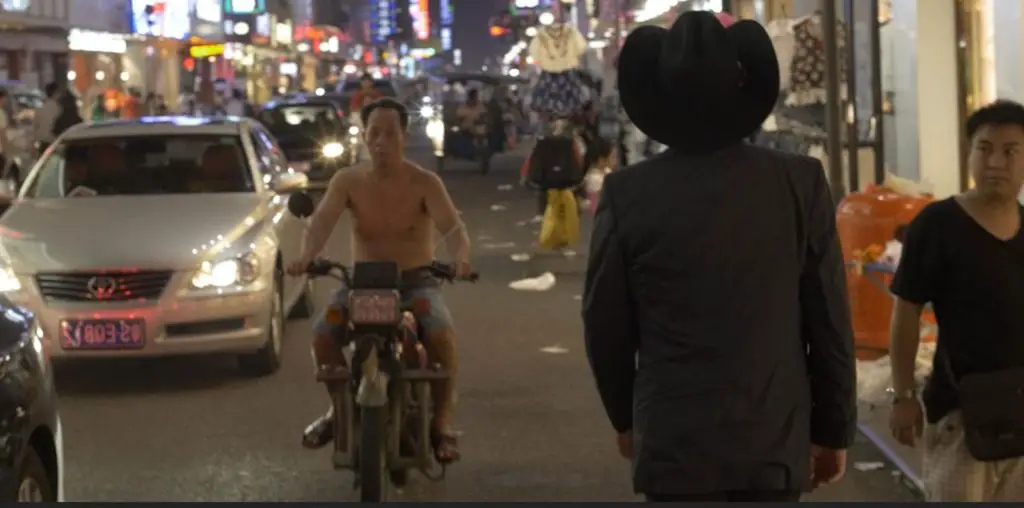
In the ’70s, the band seemed to have everything it took to make it big. Great songs, energy, charisma, a fantastic debut album. What happened? ^ John is quite open about the fact that the band made some bad decisions, including those regarding its career, early on, and says that the initial missed opportunity has made for an uphill struggle ever since. Still, their lack of commercial success cannot be attributed to bad decisions alone. I am convinced that a number of other factors played a part in their failure to achieve what seemed like a certainty at one point in time. More than bad decisions, bad timing and bad luck needs to be added into the equation, and it is my goal to discover those other factors through the making of the film. I went to France to begin the process of discovering what happened there, another point when the band seemed on the brink of making it. Negative aspects of the band’s history, but I do not intend to focus on it. I am committed to portraying the artist and the music.
What’s the band been like to work with? ^ They have been great. John has completely supportive and has been very generous in terms of giving me complete access to his life and the band. Billy Cole is great because he loves to tell stories, and Chris Barnard is very enthusiastic, and Judd Williams, the new drummer, has been especially tolerant of the intrusion, given that he just joined the band. It has been great fun, something we all agree is a critical element in music.
Is there going to be a lot of live footage? They are one of the all-time great live acts. ^ Yes, I started shooting at the Abbey Lounge (in Somerville, Mass.) a few weeks ago, and will shoot more live shows including at Lilli’s (also in Somerville), November 2nd at T.T. the Bear’s (Cambridge, Mass.), and then some dates in New York and California, hopefully Europe next summer.
Were you able to dig up any archival footage of the band? ^ Yes, I am working with Artie Freedman who has tons of footage in his Boston Rock Archives collection, as well as other individuals who have performance footage like the Bataclan concert.
Did you interview other people from the Boston rock scene for the film? ^ I am going to interview all of the former band members who are available, lots of other local musicians, as well as deejays, rock journalists, and nationally known musicians. The list includes Jonathan Richman, Marky Ramone, David Johansen, David Robinson, Paul Westerberg, Lars Frederickson, Walter Lure, Dave Grohl, Clint Conley, Roger Miller, Frank Rowe, Jeff Conolly, George Condo, Barry Tashian, Joe Harvard and Billy Ruane.
The title song is, of course, an underground classic. Why do you think it still connects with people today? ^ Its simplicity resonates pure joy and that is still infectious and infatuating. My son, who will be five years old in October, knows all the words to the song, and is always singing it to his cousins, who only know “Oops, I Did it Again!” John says his biggest thrill is playing for young kids who weren’t even born when the songs were written (“All Kindsa Girls”, 1973), but who genuinely love the music.
What surprises have you encountered in the making of this documentary ^ The entire music community has been totally supportive. Even rival bands and former band members have been incredibly enthusiastic and have expressed their genuine affection for the film and its subject. The most surprising thing, however, has been the depth and complexity of the main character, John Felice. Although I suspected there was more to the story than most people know, I am finding that there is a wealth of material here. He is nothing like the stereotype that has been created by the mythic aspects of the band’s history. The ongoing process of discovering the REAL John Felice has been the most rewarding aspect of making the film, and has exceeded my expectations even at this early date.
How do you think the band fits in with what’s going on in music today? ^ The music still appeals to young audiences because it is rooted in that teen world which juxtaposes angst and exhilaration. John is still in touch with that energy and that keeps the music real and prevents the Real Kids from being rock dinosaurs.
What message would you like to get across with the film? ^ That John Felice is a great American songwriter and that music is power.
Get more info on the official site for The Real Kids.
Check out FILMTHREAT.com’s FILM FESTIVAL ARCHIVES for more fest news!
